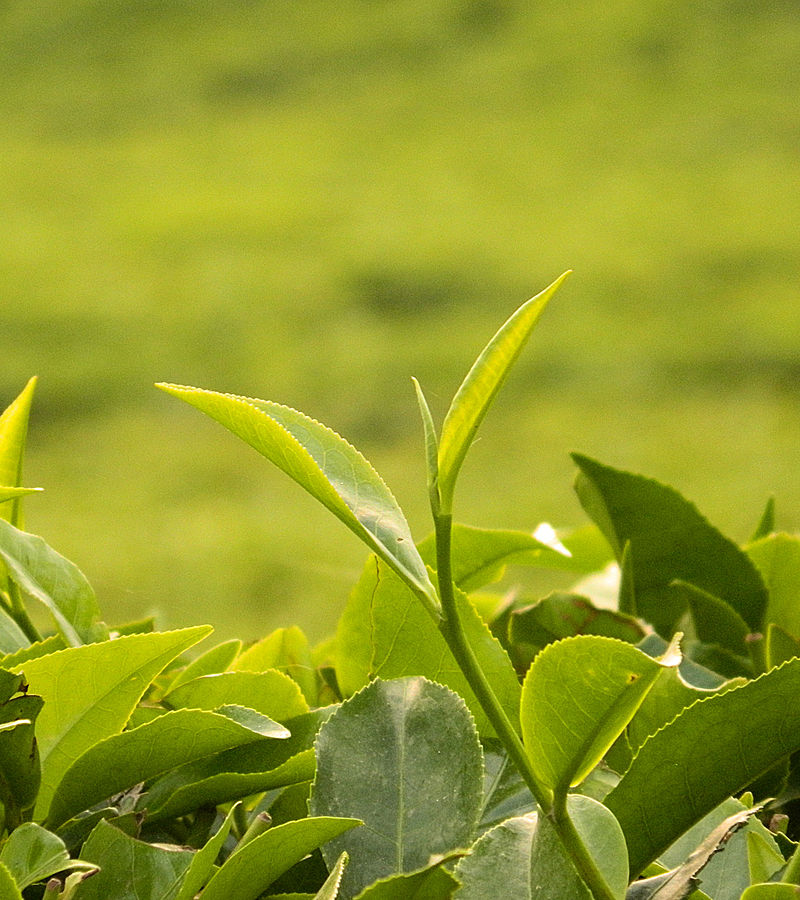Summary | Excerpt | Reviews | Beyond the Book | Read-Alikes | Genres & Themes | Author Bio

On Plants, Borders, and Belonging
by Jessica J. LeeThis article relates to Dispersals
 Few plants have impacted world history as profoundly as Camellia sinensis, the tea plant. Jessica J. Lee, in her book Dispersals: On Plants, Borders, and Belonging, describes how tea is integral to both seemingly disparate halves of her family tree—her Welsh paternal grandparents and her Taiwanese maternal family all loved tea and consumed it constantly, in different permutations and customs all stemming from the same plant. Even as she struggles to re-learn Mandarin, the many words for tea spill out effortlessly when she remembers childhood teachings, so embedded is this plant in her being.
Few plants have impacted world history as profoundly as Camellia sinensis, the tea plant. Jessica J. Lee, in her book Dispersals: On Plants, Borders, and Belonging, describes how tea is integral to both seemingly disparate halves of her family tree—her Welsh paternal grandparents and her Taiwanese maternal family all loved tea and consumed it constantly, in different permutations and customs all stemming from the same plant. Even as she struggles to re-learn Mandarin, the many words for tea spill out effortlessly when she remembers childhood teachings, so embedded is this plant in her being.
Tea is indeed intertwined with both Asian and British history—central to East Asian cultures for thousands of years, its introduction to the British in 1657 was a watershed event. By the mid-1700s, tea had become increasingly popular with all classes of British society—that dose of caffeine was helpful to aristocrats and laborers in newly established factories alike—and this demand drove two related reactions.
The first was the growing popularity of sugar, which had been a luxury but became a common addition to one's cup of tea. Sugar plantations exploded across the Caribbean, with Barbados, Haiti, Jamaica, and Cuba all being dominated by sugarcane production via slave labor. As Bill Laws explains in Fifty Plants that Changed the Course of History, wealthy British merchants "supported their banks with large loans and generous deposits, using revenue from the sugar and slave trades. Money was loaned to the plantation owners for the purchase of African slaves; profits were put back in to the business from the domestic sales of refined sugar."
This was the horrific "triangular trade" that took finished goods from Britain to Africa, enslaved people from Africa to the Caribbean, and sugar and rum back to Britain to start the cycle over again. Even after the legal end of the slave trade, sugar plantations continued to stunt economic growth and impact societies: sugar production dominated Cuba's economy until prices collapsed in the 20th century, leaving a failing financial system that had been focused on a monoculture crop.
The second historical change engendered by tea consumption involved poppies, or more specifically, the opium they produce. In the mid-1700s, as tea was gaining popularity, the British East India Company was struggling to trade for sufficient quantities with China. Chinese traders wanted silver in exchange for tea leaves, not the paper money the British offered them. Frustrated, the British instead began trading opium, mass-produced in India, parts of which were by this time under British control.
The Company smuggled opium into China like any other drug trafficker. Chinese officials banned opium as addiction destabilized society, but in 1839 and again in 1856 the British attacked China militarily in the Opium Wars. The ensuing weakening of the Qing Dynasty and devastating social impacts of rampant opium addiction led to conquest and revolution in China into the 20th century.
The connections between tea and sugar and between tea and opium are complex to recount. As Lee notes, "Entire books are needed for that task." But the centrality of a non-descript shrub to the course of human history is staggering in scope, and it reminds us we are intimately connected to the products of the plant world.
Photograph of a fresh tea plant bud by Mandeep Singh (CC BY-SA 3.0)
Filed under People, Eras & Events
![]() This article relates to Dispersals.
It first ran in the April 17, 2024
issue of BookBrowse Recommends.
This article relates to Dispersals.
It first ran in the April 17, 2024
issue of BookBrowse Recommends.
The most successful people are those who are good at plan B
Click Here to find out who said this, as well as discovering other famous literary quotes!
Your guide toexceptional books
BookBrowse seeks out and recommends the best in contemporary fiction and nonfiction—books that not only engage and entertain but also deepen our understanding of ourselves and the world around us.